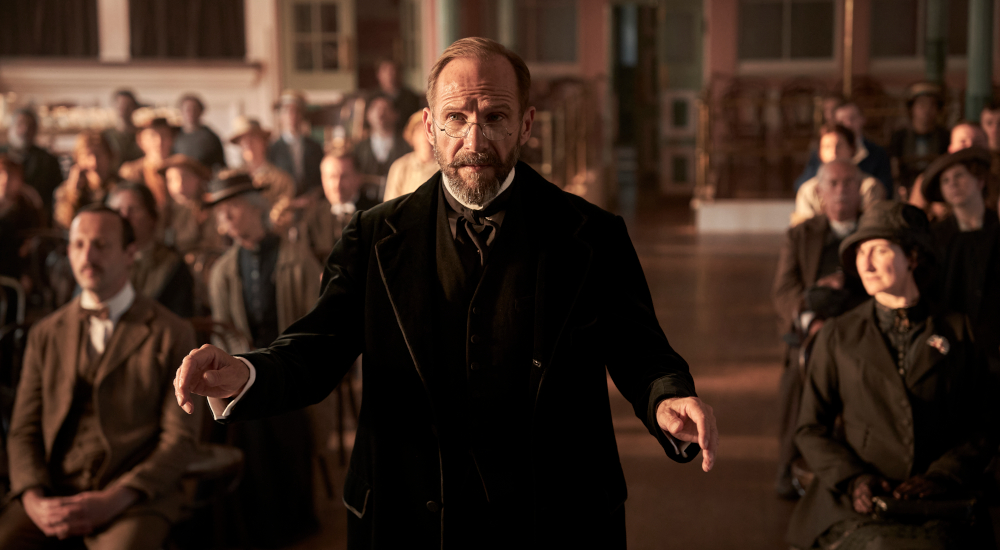“Art comes out of art.”
There are countless ways to tell a war-laden story. And while many want to use enemy conflict to generate visual spectacle, Nicholas Hytner's The Choral focuses on the lives of those left at home, grappling with the absence of those who have joined up.
The year is 1916. As the war rages on the Western Front, the Choral Society in Ramsden, Yorkshire, is dealing with the loss of many of its members who have gone to serve. Hellbent on pushing forward, the committee has decided to recruit young men to bolster their ranks. They also must find a new choral master to lead the charge. Their best option is Dr. Henry Guthrie, a controversial figure who recently returned from a stint in Germany.
Ralph Fiennes stars as Guthrie, a stern, uncompromising professional who reluctantly takes the choral master post after being granted complete creative control. And his own pianist.
On day one, he requires every singer, committee members including, to audition for the group. As gossip surrounding his time (and purpose) in Germany takes hold, Guthrie pushes forward. In desperate need of a talented tenor, he awaits licensing permission to perform Elgar's The Dream of Gerontius.
Nicholas Hytner blends the horrors of conflict with the tranquility of music, crafting a calm, wholesome, religiously focused film experience that centers on a different side of war. Instead of explosions, we get four-part harmonies. And instead of death, we see a group of civilians who long for a feeling of togetherness. Music, as it turns out, is the medicine they weren't aware they needed.
Though Fiennes is the standout of the film, screenwriter Alan Bennett beautifully interweaves a cast of unforgettable characters, most notably Alderman Duxbury, played by Roger Allam.
A central figure of the Ramsden community, Duxbury runs the local mill, employing a large portion of the town's residents. He is also the chairman of the Choral Society. Though his life proves a slow burn for viewers, we eventually learn that he has lost his only son to the war. His wife is suffering from an insurmountable amount of grief. The choral is his lifeline. And while he has arranged himself for the tenor lead, his voice isn't strong enough for the part. That realization is hard to swallow. Like many in the town, the ambitious concert is essential in giving him purpose. The production is seminal in helping him cope with the world as it now exists around him.
This is, in large part, what makes The Choral so effective. The everyday characters are particularly relatable as they navigate their newfound routine. The daily choral practice gives them life, providing a habit and a sense of intent.
Light and witty, the film embraces its European setting. And in doing so, it allows viewers to let their guard down and feel a part of the group. Though Bennett attempts to incorporate an insurmountable number of small moments into the film, at times overcrowding the narrative, he does more than enough to drive home the overarching theme that, no matter the situation, people need to feel a sense of community. And as the train pulls away, new soldiers riding off to face the unknown horrors of battle, you realize how pivotal the people around you truly are.

